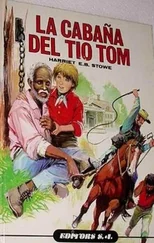Harriet Stowe - The Chimney-Corner
Здесь есть возможность читать онлайн «Harriet Stowe - The Chimney-Corner» — ознакомительный отрывок электронной книги совершенно бесплатно, а после прочтения отрывка купить полную версию. В некоторых случаях можно слушать аудио, скачать через торрент в формате fb2 и присутствует краткое содержание. Жанр: foreign_prose, на английском языке. Описание произведения, (предисловие) а так же отзывы посетителей доступны на портале библиотеки ЛибКат.
- Название:The Chimney-Corner
- Автор:
- Жанр:
- Год:неизвестен
- ISBN:нет данных
- Рейтинг книги:3 / 5. Голосов: 1
-
Избранное:Добавить в избранное
- Отзывы:
-
Ваша оценка:
- 60
- 1
- 2
- 3
- 4
- 5
The Chimney-Corner: краткое содержание, описание и аннотация
Предлагаем к чтению аннотацию, описание, краткое содержание или предисловие (зависит от того, что написал сам автор книги «The Chimney-Corner»). Если вы не нашли необходимую информацию о книге — напишите в комментариях, мы постараемся отыскать её.
The Chimney-Corner — читать онлайн ознакомительный отрывок
Ниже представлен текст книги, разбитый по страницам. Система сохранения места последней прочитанной страницы, позволяет с удобством читать онлайн бесплатно книгу «The Chimney-Corner», без необходимости каждый раз заново искать на чём Вы остановились. Поставьте закладку, и сможете в любой момент перейти на страницу, на которой закончили чтение.
Интервал:
Закладка:
"Why should not the professor lecture on home-chemistry, devoting his first lecture to bread-making? and why might not a batch of bread be made and baked and exhibited to the class, together with specimens of morbid anatomy in the bread line, – the sour cotton bread of the baker, – the rough, big-holed bread, – the heavy, fossil bread, – the bitter bread of too much yeast, – and the causes of their defects pointed out? And so with regard to the various articles of food, – why might not chemical lectures be given on all of them, one after another? In short, it would be easy to trace out a course of lectures on common things to occupy a whole year, and for which the pupils, whenever they come to have homes of their own, will thank the lecturer to the last day of their life.
"Then there is no impossibility in teaching needle-work, the cutting and fitting of dresses, in female schools. The thing is done very perfectly in English schools for the working classes. A girl trained at one of these schools came into a family I once knew. She brought with her a sewing-book, in which the process of making various articles was exhibited in miniature. The several parts of a shirt were first shown, each perfectly made, and fastened to a leaf of the book by itself, and then the successive steps of uniting the parts, till finally appeared a miniature model of the whole. The sewing was done with red thread, so that every stitch might show, and any imperfection be at once remedied. The same process was pursued with regard to other garments, and a good general idea of cutting and fitting them was thus given to an entire class of girls.
"In the same manner the care and nursing of young children and the tending of the sick might be made the subject of lectures. Every woman ought to have some general principles to guide her with regard to what is to be done in case of the various accidents that may befall either children or grown people, and of their lesser illnesses, and ought to know how to prepare comforts and nourishment for the sick. Hawthorne's satirical remarks upon the contrast between the elegant Zenobia's conversation and the smoky porridge she made for him when he was an invalid might apply to the volunteer cookery of many charming women."
"I think," said Bob, "that your Professor of Domestic Economy would find enough to occupy his pupils."
"In fact," said I, "were domestic economy properly honored and properly taught, in the manner described, it would open a sphere of employment to so many women in the home life, that we should not be obliged to send our women out to California or the Pacific to put an end to an anxious and aimless life.
"When domestic work is sufficiently honored to be taught as an art and science in our boarding-schools and high schools, then possibly it may acquire also dignity in the eyes of our working classes, and young girls who have to earn their own living may no longer feel degraded in engaging in domestic service. The place of a domestic in a family may become as respectable in their eyes as a place in a factory, in a printing-office, in a dressmaking or millinery establishment, or behind the counter of a shop.
"In America there is no class which will confess itself the lower class, and a thing recommended solely for the benefit of any such class finds no one to receive it.
"If the intelligent and cultivated look down on household work with disdain; if they consider it as degrading, a thing to be shunned by every possible device; they may depend upon it that the influence of such contempt of woman's noble duties will flow downward, producing a like contempt in every class in life.
"Our sovereign princesses learn the doctrine of equality very quickly, and are not going to sacrifice themselves to what is not considered de bon ton by the upper classes; and the girl with the laced hat and parasol, without under-clothes, who does her best to 'shirk' her duties as housemaid, and is looking for marriage as an escape from work, is a fair copy of her mistress, who married for much the same reason, who hates housekeeping, and would rather board or do anything else than have the care of a family; – the one is about as respectable as the other.
"When housekeeping becomes an enthusiasm, and its study and practice a fashion, then we shall have in America that class of persons to rely on for help in household labors who are now going to factories, to printing-offices, to every kind of toil, forgetful of the best life and sphere of woman."
III.
A FAMILY-TALK ON RECONSTRUCTION
Our Chimney-Corner, of which we have spoken somewhat, has, besides the wonted domestic circle, its habitués who have a frequent seat there. Among these, none is more welcome than Theophilus Thoro.
Friend Theophilus was born on the shady side of Nature, and endowed by his patron saint with every grace and gift which can make a human creature worthy and available, except the gift of seeing the bright side of things. His bead-roll of Christian virtues includes all the graces of the spirit except hope; and so, if one wants to know exactly the flaw, the defect, the doubtful side, and to take into account all the untoward possibilities of any person, place, or thing, he had best apply to friend Theophilus. He can tell you just where and how the best-laid scheme is likely to fail, just the screw that will fall loose in the smoothest-working machinery, just the flaw in the most perfect character, just the defect in the best-written book, just the variety of thorn that must accompany each particular species of rose.
Yet Theophilus is without guile or malice. His want of faith in human nature is not bitter and censorious, but melting and pitiful. "We are all poor trash, miserable dogs together," he seems to say, as he looks out on the world and its ways. There is not much to be expected of or for any of us; but let us love one another, and be patient.
Accordingly, Theophilus is one of the most incessant workers for human good, and perseveringly busy in every scheme of benevolent enterprise, in all which he labors with melancholy steadiness without hope. In religion he has the soul of a martyr, – nothing would suit him better than to be burned alive for his faith; but his belief in the success of Christianity is about on a par with that of the melancholy disciple of old, who, when Christ would go to Judæa, could only say, "Let us also go, that we may die with him." Theophilus is always ready to die for the truth and the right, for which he never sees anything but defeat and destruction ahead.
During the late war, Theophilus has been a despairing patriot, dying daily, and giving all up for lost in every reverse from Bull Run to Fredericksburg. The surrender of Richmond and the capitulation of Lee shortened his visage somewhat; but the murder of the President soon brought it back to its old length. It is true, that, while Lincoln lived, he was in a perpetual state of dissent from all his measures. He had broken his heart for years over the miseries of the slaves, but he shuddered at the Emancipation Proclamation; a whirlwind of anarchy was about to sweep over the country, in which the black and the white would dash against each other, and be shivered like potters' vessels. He was in despair at the accession of Johnson, – believing the worst of the unfavorable reports that clouded his reputation. Nevertheless, he was among the first of loyal citizens to rally to the support of the new administration, because, though he had no hope in that, he could see nothing better.
You must not infer from all this that friend Theophilus is a social wet blanket, a goblin shadow at the domestic hearth. By no means. Nature has gifted him with that vein of humor and that impulse to friendly joviality which are frequent developments in sad-natured men, and often deceive superficial observers as to their real character. He who laughs well and makes you laugh is often called a man of cheerful disposition; yet in many cases nothing can be further from it than precisely this kind of person.
Читать дальшеИнтервал:
Закладка:
Похожие книги на «The Chimney-Corner»
Представляем Вашему вниманию похожие книги на «The Chimney-Corner» списком для выбора. Мы отобрали схожую по названию и смыслу литературу в надежде предоставить читателям больше вариантов отыскать новые, интересные, ещё непрочитанные произведения.
Обсуждение, отзывы о книге «The Chimney-Corner» и просто собственные мнения читателей. Оставьте ваши комментарии, напишите, что Вы думаете о произведении, его смысле или главных героях. Укажите что конкретно понравилось, а что нет, и почему Вы так считаете.












